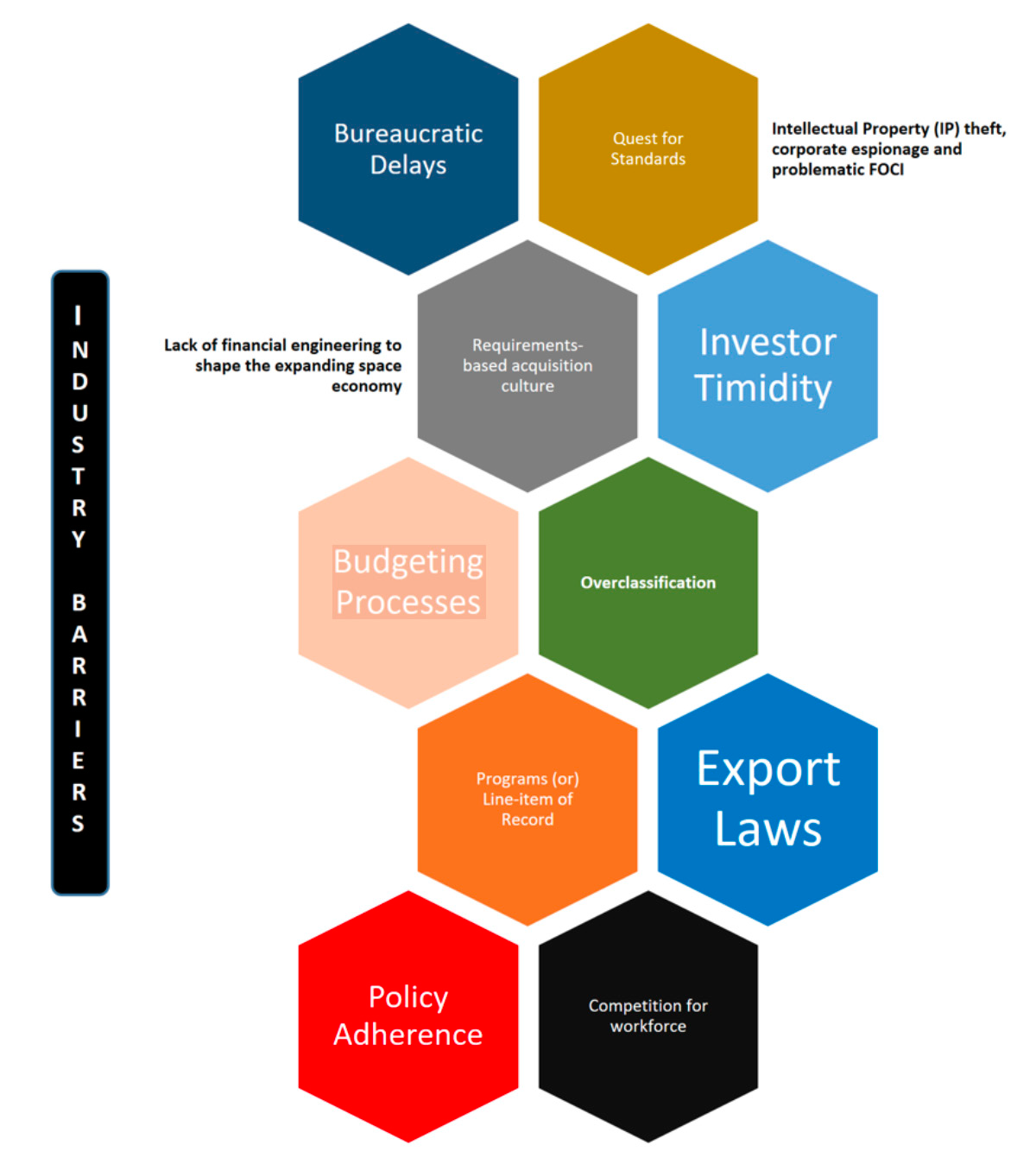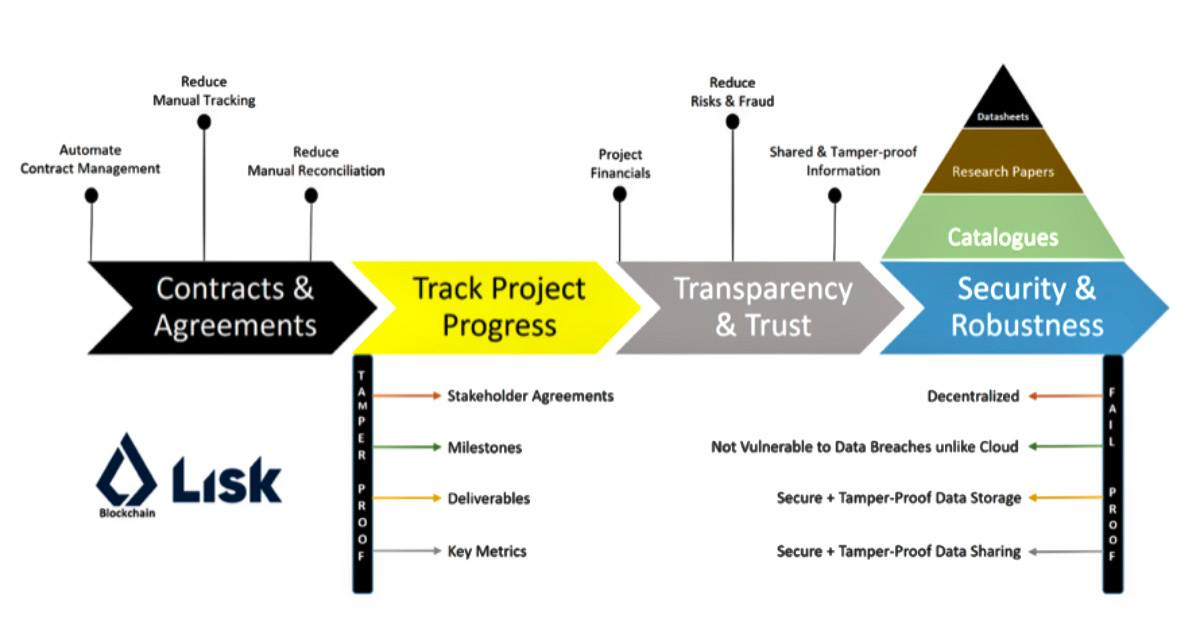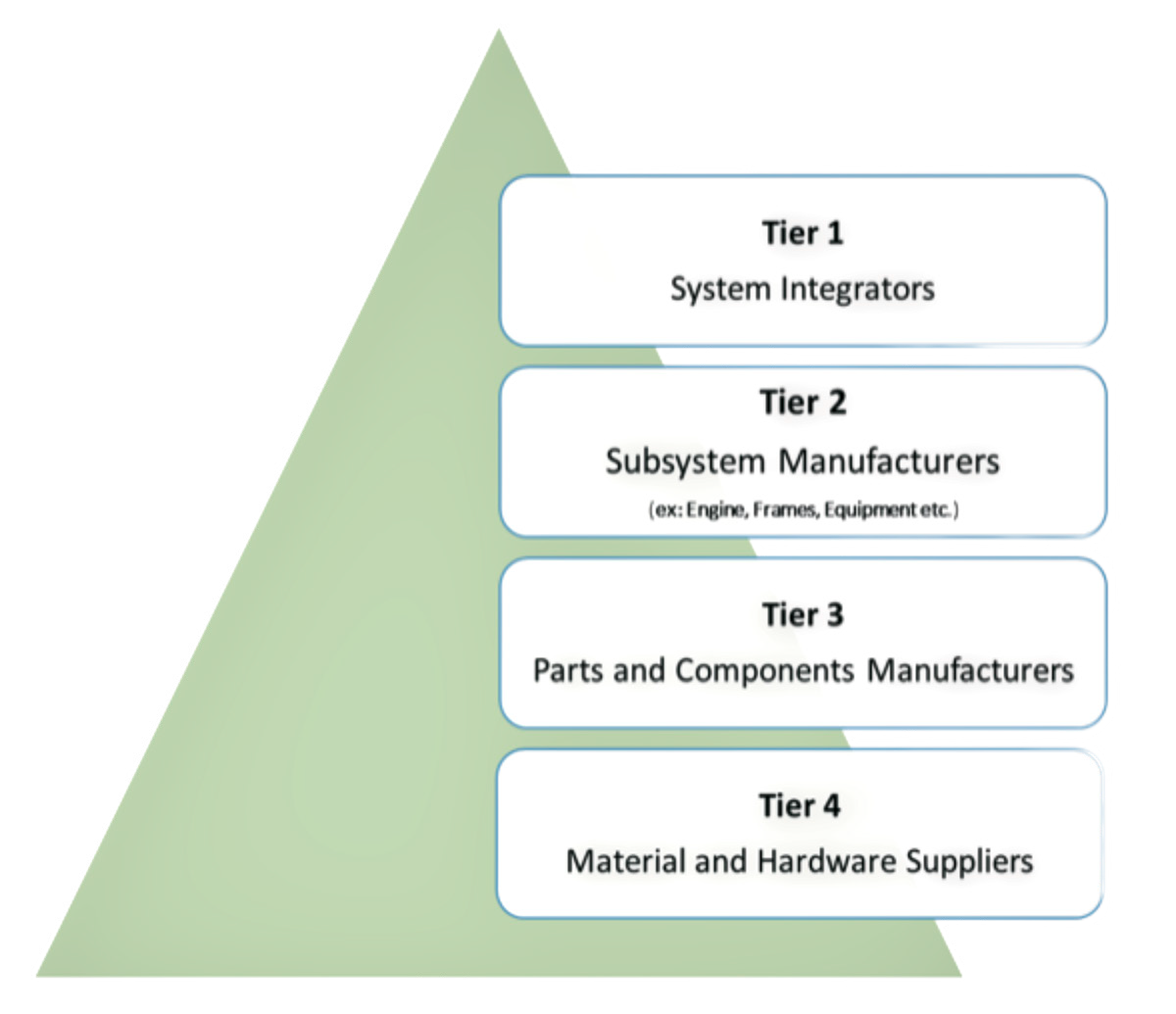Jaime Martín Lozano is a co-founder at JELLYSPACE, an easy-to-use, global collaboration platform making space technology accessible to all. Jaime was introduced to space technology through his Aerospace Engineering MEng at the University of Manchester and holds an MSc in Astronautics & Space Engineering from Cranfield University.

After his education, Jamie took up a position at Nuetron Star Systems, where he helped design novel, electric propulsion systems for spacecraft to enable the next generation of space travel. From here, Jaime earned his stripes as a Space Systems Engineer for a technology demonstration mission of the European Space Agency (ESA) called PROBA-3 with SENER Aerospace where he helped to develop, test and integrate different parts of the spacecraft software. Jaime’s efforts to empower the future of space travel and innate passion for technology, led to him co-founding JELLYSPACE. Jaime is also currently employed by Serco as a Science Operations engineer for the Gaia mission at the European Space Agency and is responsible for the initial data processing of the scientific data of the Gaia satellite.
Mr. Lozano, what led you to start JELLYSPACE?

Jaime Martín Lozano
The original idea of JELLYSPACE started in November of 2019 at the Space Startup Weekend in Bremen (Germany). I am an Aerospace Engineer by training and hold an MSc in Space Engineering and am deeply passionate about the Space industry and, most importantly, of all that we as a society can achieve by developing more advanced Space Technologies. Back then, I wanted to enable more collaboration in the Space industry but the idea was not yet fully formed. I joined Ali Musab and some other colleagues for the competition and it was then when the idea behind JELLYSPACE became fully developed.
At JELLYSPACE we believe that things in the Space industr y could (and should!) work differently. We have taken up the challenge to transform the Space industr y to enable fast and simple collaboration between all the players of the industr y: Star tups, Small and Medium Enterprises (SMEs), Small and Medium Manufacturers (SMMs), large corporations, Space and Research agencies and, of-course, independent experts and Universities.
We want to lead the next wave of innovation with space technologies by empowering private and government businesses and organizations with Artificial Intelligence (AI) based digital communication and networking tools, along with Blockchain-based supply chain management tools for handling projects and solicitations. These tools will fill the business gaps faced by the current global space industrial base’s supply chain marketplace and remove the entry barriers to a large extent.
What do you think is the biggest challenge within the Space industry right now? How is JELLYSPACE addressing this challenge?
Jaime Martín Lozano
Not just one, but there are two enormous challenges currently faced by the Space industry. Those are regulator y challenges and high costs. Both have a significant impact when it comes to star tups and SMEs or manufacturers creating valuable and innovative contributions.
A clear vision that focuses efforts, streamlines bureaucratic processes and energizes the public sector will amplify the growth and innovation in the Space industry. However, the ability to compete in the 21st century is inversely proportional to the current global Space industry’s entry barriers and some of them directly impact the New Space race for sustainability, prosperity and the planet.
Regulations in the Space industry vary by country and typically include rules related to satellite launches and operations, spectrum usage, and data privacy. As we are a startup, our current efforts and operations are mainly focused in bridging transatlantic Space industries. Some major entities impacting our efforts in the industry include the Federal Communications Commission (FCC), International Traffic in Arms Regulations (ITAR), Export Administration Regulations (EAR), Federal Acquisition Regulation (FAR), National Aeronautics and Space Administration (NASA) and other Federal or Defense regulations in the U.S. region. The European Union region is dominated by the regulations from the European Space Agency (ESA), European Union Agency for Cybersecurity (ENISA) and the United Nations Office for Outer Space Affairs (UNOOSA).
JELLYSPACE removes the entry barriers into the Space industry by allowing companies and organizations to share and access IP, technical solutions and highly specialized know-how through a highly secure infrastructure. The platform fits three innovative tiers of quality, agility and disruption and offers communication quality, networking agility and industry business contracting disruption with enhanced AI capabilities.
The platform is also able to meet the space industrial base’s supply chain requirements and demands bar for privacy, security and traceability by using the cutting-edge and cyber-secure Distributed Ledger Technology (DLT ), i.e., Blockchain tools for discussions, agreements and rapid contracting and communications.
There’s an obvious lack of reliable and efficient transportation and logistics solutions for launching and delivering payloads to space, limited access to specialized components and materials required for space-based applications, and challenges with maintaining supply chain continuity and resilience in the face of unexpected disruptions or geopolitical tensions.
JELLYSPACE can be leveraged to create new partnerships and collaborations and create new revenue streams by sharing resources, knowledge and even lLicenses or certifications, in some cases. Some countries may have less restrictive regulations than others. Companies can consider operating in these countries or setting up subsidiaries or even partner with each other to take advantage of more favorable regulations and do business with our tools.
In this manner, organizations can mitigate risks and create new markets and applications for Space-based technology to grow and disrupt regulations. JELLYSPACE can also help the Space industry to manage the transition to digitalization by facilitating projects and solicitations that use AI | Machine/Learning (ML), quantum technology, robotics, Internet of Things (IoT ), Augmented and Virtual Reality (AR / VR), and other digital technologies.
The Space industry must create a digital strategy to keep up with the changing market and this can only happen when they leverage the latest tech-trends and that, in turn, will reduce costs. This involves creating infrastructure, training personnel and developing processes to ensure the safe and secure use of these technologies happen.
As we are Space and Aerospace exclusive, our platform can be used for posting projects, tenders and solicitations that focus on developing new technologies that can reduce the cost of launches. For example, reusable rockets that can be used multiple times can lower the cost of launches by reducing the need to build new rockets for each mission (which is already ongoing in multiple countries across the globe and is expected to grow more, leading to 100s and 1000s of launches per day and we, as JELLYSPACE, would want to be responsible for at least 20% of these launches).
Another way is to develop small satellites (smallsats) that are less expensive to launch and maintain than traditional large satellites. Additionally, the industry must adapt to the changing nature of the workforce, as digital transformation will require a new set of skills and capabilities.
Regarding the regulatory challenges JELLYSPACE intends to provide a platform that is NIST 800-171, CMMC > Level-3, FedRAMP, ENISA, and GDPR compliant. To disrupt the old regulations, we bring in a Blockchain-based ecosystem to tackle contracts and project deliverables. (References: Report-1, Report-2, Report-3, Report-4)

The Space economy is nearly a half-trillion-dollar industry now yet we often only hear about the big names such as SpaceX and NASA. Do you think space innovation would be further along if there were less barriers to entry for SMEs and Entrepreneurs?
Jaime Martín Lozano
Startups and SMEs in the Space industry face a variety of challenges. These include obtaining sufficient capital to fund their operations and development, navigating a complex regulatory environment, and competing with larger, more established rivals. Additionally, they must contend with a lack of data and a lack of coordination between different stakeholders. Furthermore, the Space industry is highly competitive, and Startups must be able to differentiate themselves from rivals in order to succeed. Finally, there is the challenge of dealing with the limited resources available to most startups and SMEs, which can make it difficult to carry out research and development.
Additionally, SMEs often face greater regulatory hurdles and longer lead times in order to get their products to market. Finally, the high cost of Space launches can be an obstacle for smaller companies who lack the resources to compete with larger companies.
SMEs and bold startups that can provide innovative Space-based services will lead humanity from scarcity to abundance in the next decade. It is possible that Space innovation would be further along if there were less barriers to entry for startups and entrepreneurs in the industry. Lowering barriers to entry for small companies and startups could allow for more competition, which can lead to faster technological advancements and more efficient use of resources.
Additionally, startups often bring new and innovative ideas to the table, and the lack of bureaucratic and financial constraints can allow them to move quickly and take risks. When startups can participate in the industry, it can also lead to the formation of new partnerships and collaborations between established companies and the startups themselves. This can help to drive innovation and progress in the industry.
However, it’s worth noting that there are also other significant barriers that exist in the Space industry such as; high costs, complex regulations and technological challenges. These barriers can make it difficult for SMEs and startups to enter the market and compete with established players. Additionally, It is also worth mentioning that the Space industry is a high-risk — high-reward endeavor and not all startups will succeed and not all SMEs will acquire adequate fundings or projects.
One strategy to avoid hurdles in the U.S region would be to leverage the Defense Production Act (DPA) Title III and other authorities, such as the Defense Priorities and Allocation System (DPAS) to reduce bureaucratic delays on critical needs for national security. (OPRs: NSC, NSpC, OSTP, Office of the Secretary of Defense (OSD)), and so on.
While there may be benefits to lower barriers to entry for SMEs and startups in the Space industry, there are also significant challenges that must be addressed in order to create a more level playing field.
How would JELLYSPACE help SMEs | Suppliers break into this difficult market?
Jaime Martín Lozano
Considering we are properly funded and build out our intended features as software and AI-as-a-Service toolset, we fundamentally bridge the gaps between the suppliers Space related projects and solicitations.
SMEs and suppliers provide niche and highly specialized products and offer exceptionally specialized services and, most of the time, their high quality products and services remain hidden and unknown to the mid-sized or large companies across the globe. Now, with JELLYSPACE, they don’t have to worry about the security of their Intellectual Property (IP) or even their expenditure on the sales operations that happen through man-to-man transactions in different countries.

Our platform and features can help SMEs with many strategies, such as disrupting the global space industrial base supply chain marketplace. The Space industry’s lack the global space industrial base supply chain marketplace. The Space industry’s lack of standardization, high costs, limited availability of skilled workforce, limited funding for research and development, and inadequate regulatory frameworks results in poor
revenues for SMEs | Suppliers. Startups walk away from this industry and skilled Space industry talent, graduates and researchers switch to other industries that offer quicker and easier access to the job market. This domain needs features such as JELLYSPACE that is able to empower them to collaborate and strategize innovative ways to disrupt the supply chain, for a start.
The company is also able to Identify and excel at a specific niche. The Space industry is vast and encompasses a wide range of areas, such as satellite manufacturing, rocket propulsion, space-based data services, and more. SMEs | Suppliers can continue to focus on their specific niche and become experts or leaders in those areas, rather than trying to do everything themselves.
We can assist partners with established players. Space is an expensive and complex field and SMEs may not have all the resources to go it alone. Partnering with established players, such as government agencies, large Space or Aerospace companies, or research institutions, can provide access to expertise, facilities and funding.
Additionally, acquiring profit and revenue sharing projects is also part of our professional agenda. SMEs can combine to acquire a big Tender, Project or Solicitation and collaboratively work on it with other SMEs or startups with JELLYSPACE’s tools that facilitate such processes. In some cases, partnerships based project acquisitions allow the SMEs to share licenses and certifications that they don’t currently hold, or are expensive to acquire. This way, they can reduce costs while creating significant, combined revenues.
Leveraging technology from other industries is yet another action item for JELLYSPACE. SMEs can leverage technology from other industries, such as quantum computing, Web2 and Web3 based IoT/IIoT, Blockchain, AI, 3D Printing, 6G, Robotics, AR/ VR, or Bio/Nanotechnology, and apply those technologies to Space-related challenges.
The firm can look for opportunities in the commercial Space market. While government funding is still a major source of funding for Space projects, there is an increasing commercial Space market that SMEs can tap into, such as satellite-based services, space tourism, and mining asteroids.
A helping hand is offered that can embrace new, business models. The Space industry is evolving and SMEs can embrace the new business models such as “New Space” and “Space as a Service” that are more cost-effective, efficient and sustainable.

Developing a strong and diversified revenue stream is a major effort for us in helping clients’ achieve success. SMEs should develop a diversified revenue stream, including government contracts, private investment, and commercial partnerships to ensure a stable financial base.
Overall, vital for SMEs and startups is to to possess a clear and compelling value proposition, a strong team as well as a solid business plan in order to succeed in the amazing Space industry.
Where do you see the Space industry in 10 years?
Jaime Martín Lozano
The Space economy is expected to grow to $558 billion by 2025 and to reach $1.4 trillion by 2040. We expect a lot of things to happen in the Space industry during the next decade. The Space industry is expected to continue to grow and evolve, with advances in technology leading to new opportunities for exploration, research and commercial development. Some specific areas where significant progress is likely to be made include:
Exploration: NASA, ESA and other space agencies are planning a number of ambitious missions to explore our solar system, including sending humans to Mars and returning samples from other celestial bodies.
Satellite-based technologies: The use of satellites for a variety of applications such as communication, navigation, and remote sensing is expected to continue to expand, with new technologies and lower costs enabling more countries and organizations to access these capabilities.
Space-based solar power: R&D in this area is expected to continue, with the goal of using solar powered satellites to transmit energy to Earth, which could help to address the issue of climate change.
Space debris: As the number of satellites on-orbit increases, so does the problem of Space debris, which can be a danger to other spacecraft and, potentially, to the people on Earth. Efforts to address this issue are likely to gain momentum over the next 10 years.
Overall the Space industry will be solving the problem of access to Space and making it more affordable and sustainable for humanity with the help of more advanced technology.
We would like to add that JELLYSPACE can empower companies, organizations and individuals to build their products and services in the Space industry by removing the main obstacle they face: lack of access to a highly digitalized platform that can solve their problems with digital acquisitions and a marketplace that can enhance business to business sales of products and services.
The impact of empowering thousands of companies and millions of individuals to help develop services in this industry will accelerate innovation and growth globally at an unprecedented pace. This can move the citizens of Earth from scarcity to abundance and, in turn, pave a path for humanity toward becoming a Type-2 civilization based on the Kardashev scale (a method of measuring a civilization ‘s level of technological advancement that is based on the amount of energy it is able to use).
What is your vision for JELLYSPACE? How do you see your platform transforming the Space industry?
Jaime Martín Lozano
We would like JELLYSPACE to be a global, space-technology, innovation engine that facilitates collaboration, enhancing problem-solving pursuits across various domains in the Space industry and beyond. We are primarily a Business to Business (B2B) and Business to Government (B2G) technology service provider and our aim is to revolutionize communication and collaboration as well as amplify the digitalization of the industry with a cutting-edge toolset for B2B operations.
We are leveraging two technologies to drive our platform toward empowering startups and SMEs | Suppliers to disrupt regulations and fuel innovation in the Space sector, those being Artificial Intelligence and Blockchain.
In regard to AI, as our platform is global, companies and organizations — including research institutes and small governments from across the world — will be engaging in digital acquisitions of Space-related projects, tenders, or solicitations. They require an easy-to-use system or mechanism that can help them to post, bid, acquire and manage these projects & solicitations. To ease this process, we bring in Natural Language Processing (NLP) techniques to empower them with an AI-based system that will help them matchmake their profiles with the projects and possible collaborations they need, while also making their products easily discoverable on the marketplace we provide.
SMEs or manufacturers can connect, collaborate and work with other startups or independent experts on our platform. What this means is SMEs, experts, and startups can collectively take up a large project, share deliverables, work on them and finish the projects and/or products while share profits or revenues together. Individuals can also be matched and marked as possible freelancers to work on Space-related projects.
Knowledge sharing and collaboration have the potential to transform and impact the Space industry in a variety of ways. For example, knowledge sharing can help organizations to quickly identify best practices, learn from one another, and leverage each other’s expertise to improve their processes and operations. Collaboration can also lead to a greater understanding of the Space industry, enabling organizations to develop more effective strategies for using Space-based resources and services. Additionally, collaboration can help organizations to develop more efficient tools for the use of Space- based resources, such as satellite imagery, data, and communication networks.
Finally, knowledge sharing and collaboration can help to reduce costs and improve the efficiency of the Space industry by allowing organizations to share and pool resources including their licenses and certifications, in certain cases. AI-based matchmaking of projects, solicitations and even products and services, along with tools for real-time communication, task management and workflow coordination, will allow easier, remote collaboration and highly secure access to resources for suppliers and SMEs working in different locations — these will all be the driving features of JELLYSPACE.
In regard to Blockchain, we use this technology and have collaborated with Lisk through their Grant Program to create a highly secure infrastructure for digital assets and projects in the Space industry. With Blockchain, we intend to provide IP sharing or technology- transfers of space and aerospace-related digital assets and project and supply chain management tools.
Blockchain offers a secure, auditable, traceable, and shareable record across multiple, distributed nodes. A consensus between the project procurement partner and their customer can be easily facilitated through a shared Blockchain ledger.
For example, a Blockchain ledger will leave behind a clear and unchangeable history of the project deliverables or milestones that were agreed upon and completed. All changes made during the creation, production, or manufacturing of a design of a project or a product can be saved on a Blockchain ledger. It can also include the product test results as well. This provides a certification record for the source of all kinds of resources and components that were involved during the product development lifecycle.
As Blockchain also enforces the presence of a human entity on one end to the other during a transaction, it provides a secure and accountable mechanism to share the files or data that are involved during the project acquisitions or project delivery phase. JELLYSPACE intends to leverage these principles of Blockchain to provide a Digital Acquisitions and Supply Chain Management platform for Space-related projects and a Marketplace for Space and Aerospace assets.
Based on these two, core technologies, JELLYSPACE intends to catalyze innovation and industry disruption.
Companies can seek methods to innovate and create new technologies that are not currently regulated, giving them a competitive advantage. The industry is rapidly growing and evolving and there are opportunities for new companies to innovate and succeed in this field. The lack of an experienced workforce can create a huge problem, as the industry is relatively new, and finding the correct talent with the appropriate experience is difficult. JELLYSPACE pitches in its services and features to help companies innovate and create new business models that can disrupt regulations and revenues.
Plus, JELLYSPACE, as a transformational marketplace platform, can fill the current gaps for the global industrial base’s supply chain markets and also offer a tool-set that can enhance B2B Operations by means of secure communication and collaboration. The feature specifics would include...

Marketplace functionality that allows buyers and sellers from all the tiers to interact, negotiate, and transact businesses in various verticals.
A search and discovery functionality that allows users to easily find and access the products and services they need globally for both standard and industry-compliant high- quality products and services.
The ability to store, share, and access large amounts of data (supply chain history, tech-transfers, data sheets, product catalogs, etc.) in a secure and controlled way, with robust security protocols and access controls to ensure the integrity and confidentiality of sensitive information.
The ability to integrate data from JELLYSPACE to other tools, such as CRM and ERP, project management software, and data visualization tools, to enhance the functionality and usability of the platform.
A dedicated customer support team to assist users with any issues or questions they may have, with a tokenized reward system for post-project support.
JELLYSPACE is a hands-on platform and offers a highly secure infrastructure for digital assets in the Space and Aerospace industries. The company would like to reach 1 million transactions during the next two years — we have raised a high ambition bar with the current evolving industry trends and market growth and fully expect to meet our own, and our clients’ goals.


